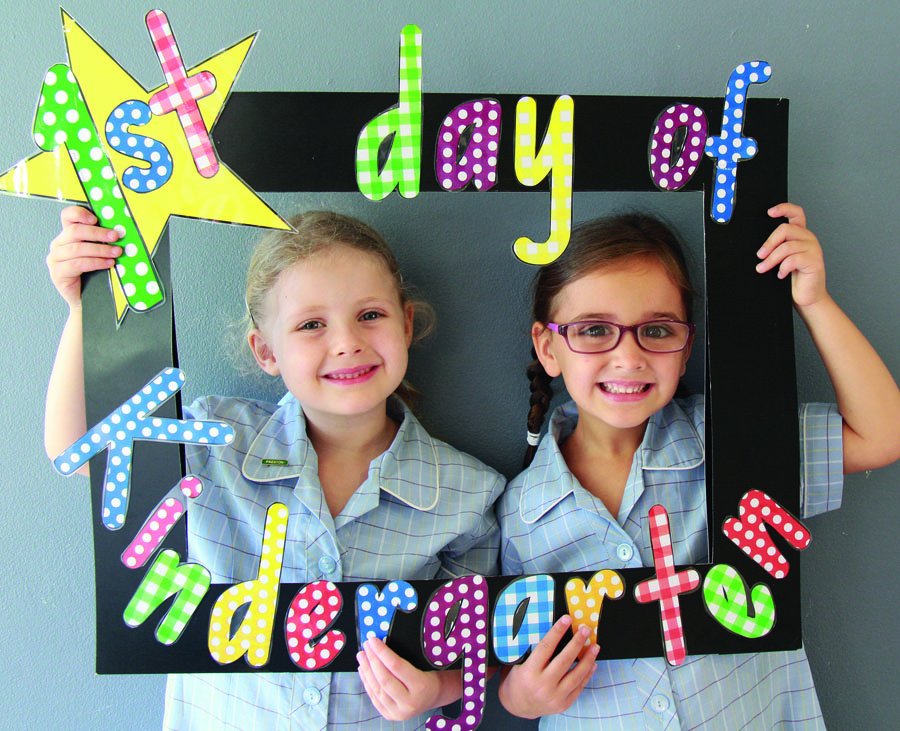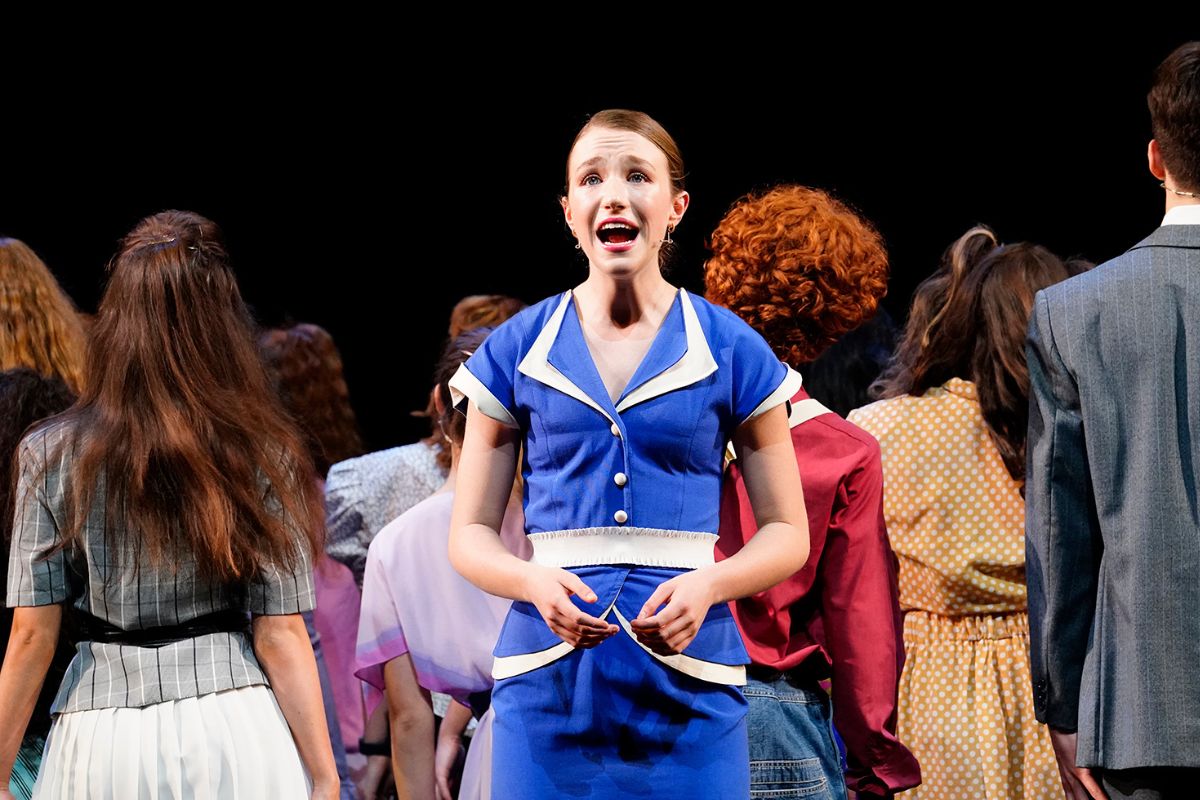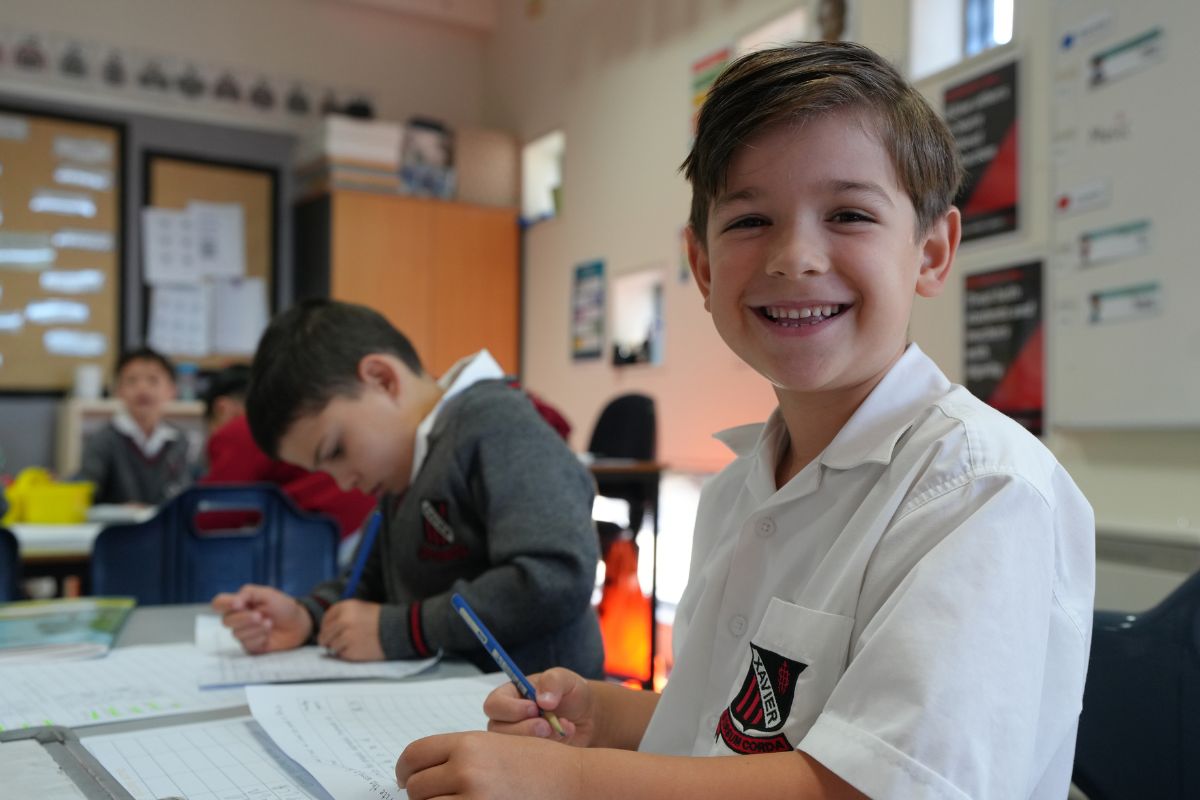Ready, Steady, Kindy!

Helping your little person prepare to start school
By Tanya Vaughan, Head of Junior School, Roseville College
To many, the notion of “kindergarten readiness” can be daunting. Don’t let it be. It is simply working alongside your child’s pre-school and future kindergarten to help little people prepare for the transition into “big school” in a way that best enables them to settle in, learn and thrive.
In my role as Head of Junior School at Roseville College, an Anglican school for girls in Kindergarten to Year 12 located on Sydney’s north shore, I am asked each year by parents for ideas to help them prepare their daughter for their first day at Roseville.
Having also served as Head of School for an independent, co-educational primary school, I know that these ideas are universal and apply to both boys and girls. Irrespective, it is imperative to have flexibility and acknowledge that children vary widely in their maturity at ages four and five; how should a four- to five-year-old think, behave and interact?
The following ideas, grouped into four categories to help us better grasp the notion of “kindergarten readiness”, can assist parents and carers to nurture skills and competencies in little people. Just remember, there may still be some skills they are working on when they start school.
The important thing is to be aware of each category and to incorporate aspects into your child’s play and activity time. This will help them view starting school positively, with a sense of excitement, and enable all members of your family to enjoy this milestone experience.
1 Social and emotional
Making friends and being congenial are at the front of many parents’ minds when wondering how their child will adjust to school life within a group of friends and peers. Your child should work towards:
- Playing cooperatively with peers, older children and adults.
- Adjusting to new environments and routines.
- Taking turns and resolving issues positively by themselves.
- Caring for others and showing concern for others.
- Asking questions.
Ideas for parents to help nurture social and emotional readiness:
- Arrange play dates for your child, ideally with others who will attend kindergarten with them.
- Teach skills of sharing, helping, listening.
- Set routines, then surprise your child with occasional change.
- Help them to recognise and respond to the feelings of others.
- Invite them to think of and ask questions.
- Encourage focus on a single task for a period of time.
2. Independence and personal responsibility
To most parents, this seems one of the more obvious categories; many are already “experienced” in working through topics such as separation anxiety, personal hygiene, manners and looking after their own (and others’) property.
Your child should be able to:
- Go to the toilet and wash their hands independently.
- Say ‘please’ and ‘thank you’.
- Clean up after themselves.
- Look after their own belongings.
- Say their first and last name, and possibly their phone number.
- Follow simple rules.
- Separate from their parents
Ideas for parents to help nurture independence and personal responsibility:
- Teach manners in various situations, among other children and adults.
- Explain simple rules and consequences.
- Create opportunities for being responsible for choices.
- Establish an expectation of keeping their own things tidy.
- Let them dress and undress themselves.
- Encourage taking turns.
- Follow a series of verbal instructions.
3. Academic, curiosity and concept development
With a little conscious effort, parents find this category is the easiest and most fun to incorporate into everyday life — while driving in the car, cooking or making things, and even finding specific items or counting produce when shopping for groceries.
Your child should work towards:
- Recognising letters, shapes, colours and numbers to 20.
- Recognising initial sounds and rhyming words.
- Using a mouse and keyboard.
- Writing letters, numerals and their own first name.
- Speaking in grammatically correct sentences.
- Listening with understanding to simple stories.
- Understanding the nature of printed text — that it is written left to right and has words that may relate to pictures.
Ideas for parents to help nurture academic, curiosity and concept development:
- Test their sight, hearing and speech abilities.
- Read to your child. Follow words with your finger underneath.
- Count objects indicating one-to-one matching.
- Play ‘I spy’ and rhyming, number and colour games.
- Borrow a variety of books from the local library and supervise constructive computer “screen time” with interactive books and learning games.
- Encourage drawing using specific shapes, lines and colours.
- Offer a variety of media with which to draw and create.
4. Physical
In a country like Australia, and a coastal city like Sydney, it is crucial parents consider water survival and swimming among their child’s physical competencies when starting school. Likewise, simple life-skill competencies such as how to hold pencils or scissors, how to use a tap or zipper, or even looking left and right at a crossing all amount to more confidence as a child embarks on their educational journey at school.
Your child should be able to:
- Hold pencils, crayons and brushes with the correct grip.
- Use scissors with some degree of accuracy.
- Open and close lunch boxes, turn taps on and off, do up and undo buttons, zippers and Velcro.
- Have confidence running, jumping, skipping, hopping, climbing, and catching and throwing (a ball).
- Climb and descend stairs independently.
- Enter and exit an in-ground pool safely and confidently.
- Submerge under water, open eyes and blow bubbles.
- Grasp a rescue aid, if required.
- Float on their back for 30 seconds.
- Recover from a face-down float to a standing float.
- Propel (by swimming, floating or paddling) for a minimum distance of 10m, with feet clear of the bottom.
Ideas for parents to help nurture physical readiness:
- Teach correct pencil grip (attachments are available that may help).
- Offer fine motor activities, such as lacing, threading, drawing.
- Purchase toys and clothes that require manipulation of smaller objects such as buttons, zips, laces, and puzzle pieces.
- Play with balls and outdoor games that include running, jumping and skipping.
- Take your child to the beach for rock hopping, digging in the sand and enjoying the waves.
- Take your child to “learn to swim” classes where they learn water safety and basic swimming skills, and gain confidence in the water around other children.
It is not a school’s expectation that each item be ticked off by the time a child starts school. However, it is important that children have an awareness of what they are working towards and that they have a willing attitude when it comes to learning and improving alongside their peers. If you have any concerns, speak with your pre-school coordinator and/or your child’s future kindergarten to ensure appropriate steps are put in place to support and encourage children who need it.
Read about the author school of this article by clicking here to see Roseville College’s Schools Choice profile.


